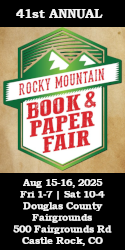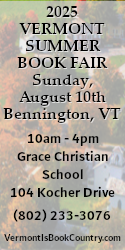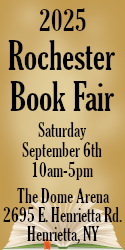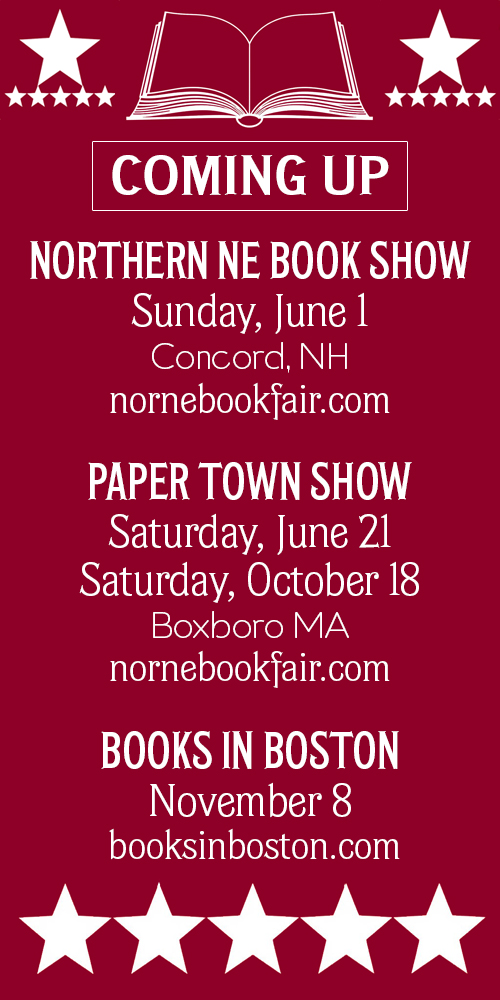Fluffy Bookshops: or Every Man his Own Bookseller
“Some are born to bookshops; some achieve bookshops; and some have bookshops thrust upon them.”
This is the opening sentence of my unfinished novel about a woman who, in middle life, does indeed have a used bookshop thrust upon her (with certain conditions attached). The plot thereafter takes many interesting twists and turns with which you, as intelligent and sensitive readers, will be delighted. The novel, I am sorry to report, has not been going well. I have been working on it – off and on – for about ten years. To tell the truth, it has not advanced beyond the opening sentence. But I am very pleased with it, thus far. Slow is not necessarily bad. Even the great Gustave Flaubert (on a good day) managed to knock out only a sentence or two. And Flaubert was a full-time writer who didn’t have a secondhand bookshop to manage beween paragraphs.
Frankly, you wonder what a great writer like Flaubert did all day. His total literary output was about five books. Apart from “Madame Bovary” can you name a single book that he wrote? I thought not (as it happens I can, but then I have studied Flaubert. I have also read Julian Barnes’ “Flaubert’s Parrot” which I recommend to you unreservedly). Flaubert, I can tell you, led a pretty charmed life. Having announced at an early age that he was going to be writer, he stayed at home, in a nice warm house in Normandy, supported by his mum and dad, a parrot, and a swarm of maids called Felicity who did all his cooking and his laundry and probably chopped the wood too to keep him warm. Ensconced there, he scribbled away at the rate of about a sentence per day until he became rich and famous and irresistible to women. Some people have all the luck.
Sour grapes? Not a bit of it. I think “Madame Bovary” is a terrific novel. And so is mine. Or will be, when it gets finished. If I’m envious of anyone, it’s those people who “are born to bookshops”. What a breeze! You wake up one day and your dad or your grandpa or your great-grandpa calls you in and says “Well, son/grandson/great-grandson I think it’s time you took over the family bookshop.” And he hands you the key to the shop and the accumulated stock and book knowledge of one or two or three generations. Speaking as one who achieved his bookshop (several bookshops, actually, but serially) on the trial-by-error system, I think that acquiring a bookshop by succession would be pretty neat.
So how come there are actually very few second or third generation bookshops? Clearly the children of secondhand bookdealers have more sense. Take Leo Marks. In his book “Between Silk and Cyanide: A Codemaker’s War 1941-1945” (Simon and Schuster 1999) Leo refers a number of times to his father Ben who co-owned “Marks and Co.” – the famous bookshop whose address was 84 Charing Cross Road. At least I think his name was Ben. Sadly, I am unable to check, nor can I quote directly from my copy of this book, since it lies at the bottom of a pile of about two thousand of my books which are waiting patiently to be re-shelved in my house at Woodend. But Leo says of his father (and I paraphrase): “Like most very good bookdealers, my father read very little and certainly not fine literature.” But he also makes it quite clear that his father made a very good living from bookselling: Ben Marks was one of the Top Five bookdealers in London who constituted the upper layer of the book auction “Ring”. (There are some wonderful insider stories in the book about the London book trade in the 1930s and 1940s, including a ripper about Frank Doel, but I dare not digress further from my theme, which will soon, I assure you, become apparent). No, Leo chooses to read fine literature and to pursue a career in ciphers, code-making and cryptography, for which he has a flair. He also has a flair for writing poetry. This is a poem he wrote about his girlfriend, Ruth Hambo, who was killed in an air crash in Canada (he later gave the poem as a cipher key to Violette Szabo, who worked as an agent in Nazi-occupied France).
The life that I have is all that I have
And the life that I have is yours
The love that I have of the life that I have
Is yours and yours and yours
A sleep I shall have, a rest I shall have
And death will be but a pause
For the years I shall have in the long green grass
Are yours and yours and yours
Why would you bother to take over your father’s old book business, when you have the talent to write stuff like that? (When I first read this poem, I took the trouble to copy it, which is how I am able to quote it here).
So Marks and Co., like so many other bookshops, remained a one-generation wonder. I fall to wondering which is the oldest secondhand bookshop in the world which has remained continuously in the hands of one family. (Answers on a postcard, please). I also fall to wondering which is the oldest secondhand bookshop in the world, period. Could it be the Nagata Bunshodo in Kyoto, Japan? It specialises in Buddhist books and was founded in 1610; in other words it was started a few years before the death of William Shakespeare and, apparently, is still going strong. In Australia, needless to say, we have few old book businesses and fewer dynasties of booksellers. Of the latter, perhaps only one: Berkelouws, who have two shops in Sydney and a book barn (housing over a million books, it is said) at Berrima in rural New South Wales. I made the mistake once at a Melbourne Book Fair of engaging in conversation a junior branch of this venerable enterprise. “Tell me,” I said, “what’s it like being a third-generation bookdealer?” “Sixth, actually,” he said tersely and walked off. Which, I discovered, was true enough. Berkelouws were founded in 1810, and fourth-generation Isidore Berkelouw brought the business from Holland to New Holland (so to speak) in 1949. So third-generation in Australia. (In case you’re wondering, Henry Berkelouw, who is related, runs another antiquarian book business Berkelouws Inc. in San Francisco). I await my chance to re-pose the question, substituting “sixth” for “third” but perhaps next time, like Pontius Pilate, I will not stay for an answer.
Still, Berkelouws are the exception. The rule is that few children follow their parents into bookdealing, and still fewer grandchildren. And the reason they don’t is because, in the main, they have seen at close quarters how hard it is to make a decent living from dealing in books. Especially from bookdealing in a bookshop. It was ever thus. One of my favourite books about a secondhand bookshop slipping into financial hot water is Will Darling’s “The Private Papers of a Bankrupt Bookseller” (1931). I recommend it to you. But quiet desperation, rather than bankruptcy, is more generally the bookdealer’s lot. Still, bookshops have generally had a good run over the past fifty years or so. You could even argue that the post-World War Two era has been a golden age for secondhand bookshops. Never before have there been so many good bookshops, so many good books and so many good customers. But the golden age, if it was one, is over. We are, I suggest, entering a new age, a leaden age, in which secondhand bookshops, especially those with general mid-priced books, will struggle for survival. As a career bookseller for just on twenty-five years and the owner of a secondhand bookshop selling general mid-priced books, I engage in this topic not from some theoretical or philosophical hill-top. I’m down at street level (not quite in the gutter) and I’m seeing the signs and I’m tightening my belt and I’m wondering what’s going on.
What’s mainly going on, needless to say, is Information Technology. The Internet and its technological tentacles have got a firm grip on the used book trade. No prizes for spotting that. But I see other more subtle but equally momentous changes to do with the tastes and life-styles of the book-buying public; the location of bookshops; the availability and quality of stock; the nature of booksellers; competition for customers. All these things have an impact on the viability of the general secondhand bookshop like mine.
And while my concern is primarily selfish, being focused on the well-being of the professional bookshop, in other words for the bookshop from which the owner derives the bulk of his or her income (as I do), I do not resent or disparage those secondhand bookshops which are run as hobbies or as side-lines. (One of my colleagues, looking down his nose, calls these businesses “fluffy bookshops”). Far from it. I regard bookshop owners – whether professional or amateur – as the aristocrats of the book trade. (Naturally, even in the aristocracy there is a hierarchy; not all of us are emperors, dukes or princesses.) To open and to manage a bookshop is no light undertaking. It involves (generally) a more serious commitment of time, money and energy than any other mode of bookselling. And bookshops are the highly visible face of our trade, where most members of the public derive their first and enduring experience of old books and booksellers. The secondhand bookshop owner is in the front line, and front line troops who do a good job – whether regulars or reservists – deserve respect. Rather than divide bookshops into “professional” and “amateur”, it is perhaps more useful to distinguish between “good/serious” and “less good/less serious” bookshops, whatever their professional status.
Nevertheless, I have to say that running a fluffy bookshop will never appeal to me. The challenge of bookdealing (for me) is to provide a good service AND to make a decent living for myself. Anything less would be fun perhaps but ultimately unsatisfying, “like playing tennis without a net” (I have borrowed this useful phrase from someone – I forget who – who used it to disparage the composition of free – as opposed to rhyming – verse). Hobby bookshops – more or less subsidized by their owners – will always flourish in all sorts of places. But their owners share some of the same problems as professional booksellers – we are a diminishing band (I suspect) who face – at least in this country – diminishing returns, increased overheads, and stiffer competition (for stock and customers) on a playing-field which has a definite slant.
Three of us career bookdealers (I believe that the technical collective noun is a “binding” of booksellers) were gathered in my shop, talking doom and gloom over coffee. “If you could put the clock back ,” said one, “and cancel the whole thing – the world wide web and cyberspace and selling books on the internet, would you do it?” I paused to think. For me, the Internet has been a mixed blessing. It hath given and it hath taken away. Five years ago, when I first listed stock on “Bibliofind” and “Bibliocity” (remember them?) I was selling books hand-over-fist. Dead stock which had languished on my shelves for years suddenly turned into cash. With the number of parcels I was sending out each week, I wished I could buy shares in Australia Post (not possible, because Australia Post is owned by the government, provides an excellent service AND turns in a handsome profit every year.) But year-by-year my Internet sales have dwindled inexorably. Despite having many more books listed, I sell far fewer; I begin to resent the time and money spent having these books catalogued and handled, and the disruption of stock that it involves. On the other hand, the Internet has made book searching a breeze; as a price guide it is unreliable, but it gives some notions of rarity and availability; and it seems to have brought some new customers into the shop. It is quite usual for Melbourne people to ring or e-mail me to inquire about a book they have seen listed by us on the net. They ask us to reserve the book until the week-end, say, when they will come to shop, inspect the book in person and probably buy it, plus a couple of other books as well.
All well and good, but the number of customers through the door has dwindled too. Week-ends always used to be our “banker” days: our takings on a Saturday and a Sunday would unfailingly equal or exceed our takings on the other five weekdays put together. Not any more. Intuitively, I blame the Internet. My feeling is that in the past serious collectors and readers came to my shop in search of specific items. Sometimes they found them, often they didn’t, but while they were in the shop they usually found something worth buying. Nowadays they can find on the net exactly what they’re searching for, so they have no need to browse shops like mine. So: fewer visitors, fewer impulse buys. Bad news. “I’d gladly put the clock back,” I say.
My colleague (the one who asked the question) applauds me, and sums up the situation with his usual briskness. “What the Internet has done with secondhand books is make what was an inefficient market efficient. The Internet instantly matches buyer and seller, books wanted and books for sale. And in an efficient market there is little scope for middlemen, like general bookdealers , to take their cut. It has turned the once-orderly but relatively inefficient secondhand book trade upside down. Whereas in the old days a valuable secondhand book might have passed through three or four dealers’ hands before being sold to a private customer or institution, with everyone taking a profit on the way, nowadays the food-chain is finished. A book scout can sell on the internet direct to the end customer, and at a fancy price.” This colleague deals exclusively by catalogue at the top end of the market. He has never listed his books on the Internet and he never will. “Why should I advertise to the world the prices I charge and the knowledge I have acquired painstakingly over thirty-odd years, so that any tomfool can undercut me or plagiarize me? I abhor the Internet and if I had a shop I’d ignore it and concentrate on looking after my local clientele. Which is what bookshops do best.”
The third bookdealer owns what I think is the oldest and best general bookshop in Melbourne. He says that his wages bill alone for the month of January was $14,000, which is more than the business can afford, but he has to have extra staff to handle Internet sales, which are labor-intensive. “How can I compete with scab labor, who pay no wages to anyone or who count their own labor for nothing? I’m competing against people on the Internet who are rank amateurs, who are selling parts of their collections or who pick up their stock for peanuts at garage sales and opportunity shops. They should be lined up against a wall and be, well, severely discouraged.” Will he withdraw from Internet bookselling and concentrate on shop sales? He is undecided. He has invested heavily in the Internet side. Besides, shop sales are sluggish. “I’ve got more good books in stock than I’ve ever had. Multiple copies of books which 15 or 20 years ago would have sold in less than a week. It’s bizarre. Yes, I’d willingly go back to pre-internet days.” Bizarre, and disquieting. There is much gnashing of teeth, and lamentation amongst the coffee cups.
Not long after this colloquium, I came across an excellent paper delivered by Ken Lopez to the Fellowship of American Bibliophilic Societies in 2002 and reprinted in the ILAB Newsletter Number 55 (March 2003). Ken Lopez gives a perceptive analysis of the effects of the Internet on the book trade, notably the break-down of the traditional “food-chain” and the sudden widespread availability of books and information which has tended to drive the price of rare or collectable “high spot” books upwards and the price of less desirable books downwards. But Ken Lopez is sanguine about the future: “We are probably going to look back on these few years before and after the turn of the century as the Golden Age for book buyers. More books have become more readily available to more people at one time than has ever been the case before or will ever be the case again. There simply aren’t another 10,000 dealers out there to list their stock online, beyond the ones who have done it already.” He concludes: “So buy now, buy lots, the prices are only going to go up in the future, both for the rare material and the medium-rare material which at the moment is being kept somewhat artificially low.”
A Golden Age for buyers, perhaps, but not for sellers. So, if Ken Lopez is right and if we bookshop owners can just hang in there for a few more years, the wheel will have turned, the buyers’ market will have softened and we will prosper once more. But can we hang in there? Is it worth the wait? Several of my colleagues in Melbourne have decided that it is not. They have abandoned their bricks-and-mortar bookselling businesses and now trade only on the net. In Sydney likewise. The “Sydney Morning Herald” (9 August 2002) ran this emotive headline: “Old book browsing’s end nigh as market shifts to cyberspace.” In the article beneath, four prominent Sydney booksellers gave their reasons for relinquishing their shops in favour of selling exclusively on the internet: high rents, lack of passing trade, competition from shopping malls. By contrast, they said, Internet trading offered better customer “reach” and better returns, with fewer overheads and fewer committed hours.
High rents? What’s new? Fewer and fewer used bookshops can afford to pay rent in the central business district or in the better inner suburbs of cities and large towns. We shopkeepers used to believe this adage: “Look after the shop and the shop will look after you.” Nowadays we tend to believe the reconstructed version: “Look after the shop and the shop will look after your landlord.” No point in bemoaning this: in real estate, the market is the market. Interestingly, plenty of used bookshops in Australia are springing up and flourishing in small country towns where rents are relatively cheap, shop premises are big and cashed-up tourists, day-trippers or week-enders, are pleased to find an oasis of old books where they can while away their time and their money. While they probably shun their local suburban bookshop back home, and will certainly not drive across town to visit a suburban bookshop, they happily patronize the quaint country bookshop while they are away for the week-end. A case in point: a female assistant at my local post office assured me (as I handed her my internet parcels) that she was an avid book lover; she would certainly visit my bookshop often, she said, during her lunch hour or even at week-ends. She always bought lots of books whenever she went for the week-end to Daylesford (a nice tourist spa town about an hour and a half’s drive from Melbourne). You will not be surprised to learn that in the two years she worked at the post office she never once visited my shop.
At least she is buying her books somewhere (or says she is. You can’t believe everything people tell you). My experience in the last few years is that fewer people are buying books or else (more likely) the same number of people are buying fewer books. Either way I’m selling fewer books in the shop, and having to work harder to sell those that I do. The Internet is only partly to blame. I have a strong sense that there has been a change in the public’s attitude to books. Twenty or thirty years ago, the baby boomer generation (to which I belong) collected books – and plenty of them; books were affordable, remainders were a novelty and it was fashionable, cool even, to have rooms lined with bookcases which overflowed with books. It’s different nowadays. Baby boomers, are downsizing, moving to Woodend or Daylesford, travelling light, getting rid of books, not acquiring them. The mood is minimalist. It’s cool to have not too many books, just some conversation pieces, something quirky or modish. People still read, but for many – especially youger people – the book is a disposable item, a perishable consumable commodity, an encumbrance even. Buy it, read it, toss it. And the days of settled families, living out their lives in one rambling family house, are long past. People travel, they get divorced, they move house, they change jobs and partners; they tend to live in small apartments or units. This is not the environment to encourage book hoarding. This may be a temporary hiccough; or it may not be. If not, we bookshop people had better be nimble enough to adjust to the changed situation.
The corollary of all this is that there are fewer large collections available for bookshops to buy. In the old days it seemed that every month I would be offered at least one large miscellaneous collection of old books – perhaps a deceased estate or from someone moving house. Often there were interesting or valuable books in amongst them, which would make buying them worthwhile. Nowadays it happens much less often. There are fewer large collections around, and nowadays every vendor is an expert on old books. “This book is selling on the net for $100, so we’d want at least $80 for it.” Or else the vendor culls the good books, sells them independently on e-bay or abebooks, and brings the unsaleable dross to us. So the used bookshop is regarded as a free dump for unwanted paper. Terrific!
Other developments make it harder for us to get our hands on good stock. Charity shops – once a reliable source for booksellers in search of books – now employ experts to sift and sort their book donations. Several of them – such as Oxfam and the Salvation Army – run their own secondhand bookshops where they charge commercial bookshop prices. How can we compete against bookshops who pay nothing for their stock, pay no wages and who pay (as often happens) reduced rents and taxes? Perhaps a greater potential threat comes from the big category-buster bookstore chains such as Borders and Barnes & Noble. What will be the result when they start dealing in used books? It hasn’t happened in Australia yet, but I understand that it’s happening in the U.S. And why wouldn’t it? There are good margins to be had in used books. Think of the buying power of such outfits. Little guys like me trying to compete would be blown out of the water. “You’ve Got Mail” was kinda cute, but we can’t all end up marrying the C.E.O.
What is the solution? Where do we go from here? Is the answer to give up general books and run a specialist bookshop? Or withdraw from the shopping strip, rent a warehouse and just do mail order and Internet business? Or do we tough it out, and meet the challenge? Retailing to the reluctant was never easy. And if running a general bookshop was easy, everyone would be doing it. And if it was easy, it wouldn’t be much fun. So I guess there’s my answer. I shall work at the solution. Maybe I will drop Internet bookselling, or maybe I won’t. Either way, expect me to be around Rathdowne Street for a few more years yet.
Winston Churchill once observed that the single most important social division was not between rich and poor, but between those people who enjoyed their work and those who did not. On this basis, we booksellers who have shops are very fortunate. No one forces us to have bookshops. We follow our bliss and we get money for doing so; moreover the rewards of shop-keeping are not simply financial. We get to meet nice people and to use our brains and to feel that what we do is useful. It is a privilege to spend the working day surrounded by great works of art and literature and scholarship. There is some inexpressible magic and mystique about old bookshops: the whole is somehow greater than the sum of its parts. (Yes, you know some old bookshops that are complete “wholes” and so do I. We are not talking about them).
Mystique is all very well. But booksellers also need a certain amount of cash. It’s how we pay our bills. People who visit bookshops sometimes seem to forget this. Especially some people who protest (too much) that they love bookshops. I posit this law (Marshall’s Seventh Law of Bookselling): “Customers gush in inverse proportion to the amount of cash they spend.” In other words, the person who on leaving your shop waxes lyrical about your wonderful bookshop and your fantastic books and how you booksellers are really the salt of the earth never buys anything. Or rarely. That’s my experience anyway. Don’t be a gusher. Or if you must be, prove me wrong!
There is an old Chinese proverb: “Man who not have smiley face should not open shop.” Well, my smile has been a little strained lately but I remain hopeful. I know the world is still full of people like you who love to visit old bookshops and buy books. But if you want to keep your old bookshops you must support them. By all means, continue to buy difficult-to-find books on the Internet; but remember, for browsing, you can’t beat bookshops. Make yourself a promise. Make a point of re-visiting some of your favorite bookshops soon, and often. And buy books there. Before it’s too late.
Anthony Marshall is the owner of Alice’s Bookshop in Melbourne, Australia and author of “Trafficking in Old Books” (Lost Domain 1998).


























